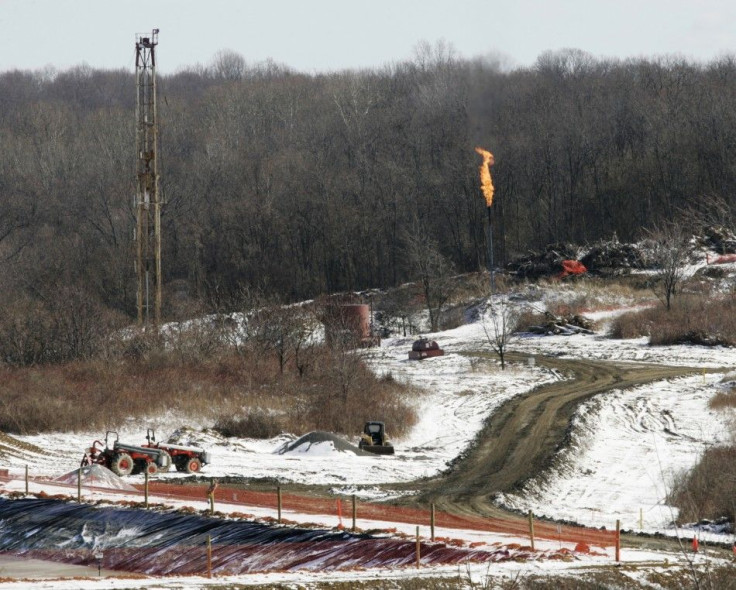EPA Releases New Fracking Air Emission Standards

Natural gas companies have until Jan. 1, 2015, to install air emission equipment on hydraulically fractured wells that is designed to capture and prevent toxins and methane from escaping into the atmosphere.
The deadline is part of a new set of rules and regulations, released on Wednesday by the U.S. Environmental Protection Agency, aimed at reducing toxic emissions of volatile organic compounds (VOCs) that are products of the natural gas drilling method called hydraulic fracturing, or fracking.
EPA Assistant Administrator Gina McCarthy said the agency's new rules, while not specifically targeting greenhouse gases, have the benefit of also reducing the amount of methane released into the air.
Methane is a highly potent greenhouse gas, and under the new rules, as much as 1.7 million tons of methane emissions per year will be cut from the natural gas industry, which emits 40 percent of the methane released in the United States.
Today's rules are expected to help reduce smog formation in areas where natural gas production occurs, and to protect against cancers from air toxins, and do it in a cost-effective way, McCarthy said.
The rules won't fully take effect until 2015, so as to give natural gas companies time to gradually comply with the regulations and order and install the VOC capturing devices. In the meantime, companies are expected to conduct a minimum amount of flaring, a practice that involves burning VOCs in a continuous flame at the site of a well.
The American Petroleum Institute, the largest industry trade group, said the new standards are an improvement over previous proposals, and that they give companies the time to meet the new regulations while also being able to maintain production of natural gas.
This is a large and complicated rule-making for an industry so critical to the economy, and we need to thoroughly review the final rule to fully understand its impacts, said Howard Feldman, the API's director of regulatory and scientific affairs.
© Copyright IBTimes 2024. All rights reserved.




















